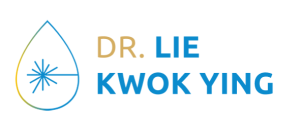Benign Prostatic Hyperplasia (BPH), or enlargement of the prostate gland, is a common condition affecting aging men. It can lead to lower urinary tract symptoms (LUTS) such as frequent urination, weak stream, and nocturia, significantly impacting quality of life. Fortunately, advances in both medical and surgical management have greatly improved outcomes for patients suffering from BPH.
Medical Management
The first line of BPH treatment typically involves pharmacotherapy. Alpha-blockers, such as tamsulosin and alfuzosin, remain a cornerstone for relieving symptoms by relaxing smooth muscles in the prostate and bladder neck. 5-alpha-reductase inhibitors (5-ARIs) like finasteride and dutasteride are also widely used to reduce prostate size over time.
Recent advances include the development of combination therapies that offer better symptom control and reduce the risk of progression. In addition, newer agents such as phosphodiesterase-5 inhibitors (e.g., tadalafil) are gaining attention for men who have both BPH and erectile dysfunction.
Personalized medicine is also emerging as an important approach. Genetic markers and patient-specific factors are increasingly being used to tailor medication choices and predict treatment responses, minimizing side effects and improving outcomes.
Surgical Management
For patients who do not respond to medications or have severe symptoms, surgical options are considered. Traditional procedures like Transurethral Resection of the Prostate (TURP) are still widely performed, but minimally invasive surgical therapies (MISTs) are rapidly becoming preferred due to shorter recovery times and fewer complications.
Technologies such as Rezūm (water vapor therapy), UroLift (prostatic urethral lift), and HoLEP (Holmium Laser Enucleation of the Prostate) represent significant breakthroughs. These procedures are often done on an outpatient basis and preserve sexual function better than older techniques.
Robotic-assisted surgeries are also gaining ground, offering high precision with less bleeding and faster recovery. With continuous innovation, many men now have access to highly effective and less invasive procedures tailored to their specific anatomy and condition severity.
Conclusion
The landscape of BPH treatment has changed dramatically in recent years, offering patients a wide range of effective options. Whether through modern medication regimens or minimally invasive surgery, men today can benefit from safer, more personalized, and longer-lasting solutions. As always, early consultation with a qualified urologist remains key to determining the most appropriate course of action.
Looking for a trusted Urologist in Singapore with proven expertise and compassionate care? Visit Dr Lie Kwok Ying | Urologist In Singapore | BPH Specialist.
Clinic: Dr Lie Kwok Ying | Urologist In Singapore | BPH Specialist
Name: Dr Lie Kwok Ying
Address: 820 Thomson Rd, #02-01, Singapore 574623
Phone Number: 6553 5066
Schedule:
Monday-Friday: 08:30am – 5:00pm
Saturday: 08:30 am – 12:00 pm
Sunday / PH: CLOSED
Description: Urologist In Singapore With 20 Years Of Experience. Fellowship-trained Senior Consultant Urologist specializing in benign prostatic hyperplasia (BPH), kidney cancer, bladder cancer, and kidney stones. Pioneer in HoLEP (Holmium Laser Enucleation of the Prostate) in Singapore.
Website: https://lkyurology.com/
Email: alvernia.clinic@urology.com.sg





